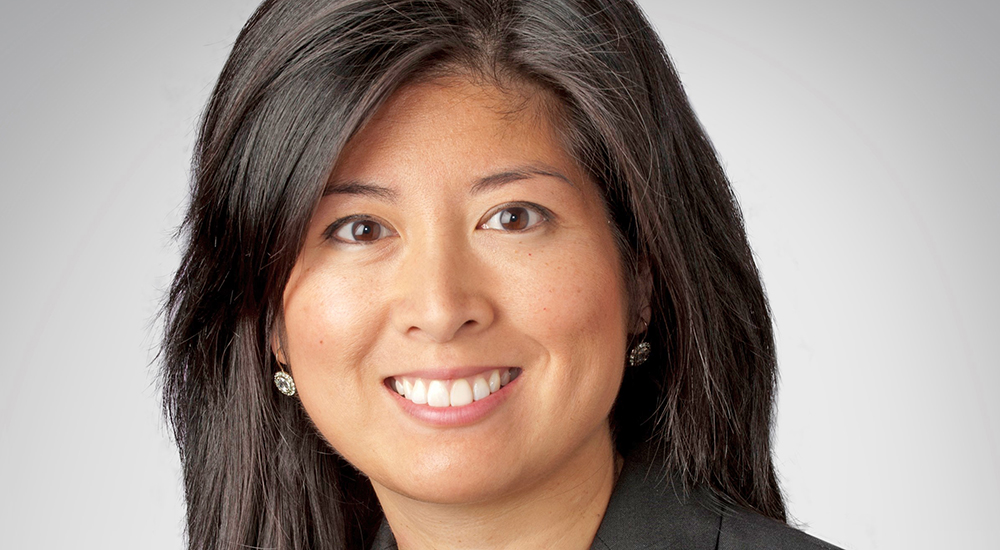Dr. Vida Passero, chief medical officer of VA’s National TeleOncology (NTO), is at the forefront of ensuring all VA patients have access to specialized hematology/oncology care and treatment.
By spearheading ground-breaking National TeleOncology (NTO) services such as National Virtual Tumor Boards (VTBs), she is helping Veterans at smaller or rural facilities receive the same standard of care as patients of a larger VA medical centers.
“Through specialized boards, we can connect experts nationwide, and leverage supportive systems and partnerships with academic affiliates to provide multidisciplinary care for Veterans no matter where they live,” said Passero, pictured above.
Passero and her team continue to work on expanding across-the-nation specialized care, aiming to deliver screenings, diagnostics and treatment.
66% of rural counties have no oncologist
According to an American Society of Clinical Oncology report, 66 percent of rural counties have no oncologist. Traditionally, Veterans in these counties may face issues accessing care due to a lack of cancer providers in their local area.
To address this challenge, VA uses a “hub-and-spoke” model of care. The TeleOncology hub located virtually in Durham VA provides resources and staff support through partnerships with spoke-site VA Medical Centers nationwide, especially in rural areas that lack cancer providers.
Teams include care coordination nurses, physicians, clinical pharmacy practitioners, advanced practice providers, telehealth care technicians and medical support assistants.
Fifty-six percent of Veterans who received cancer care through the National TeleOncology service in 2022 lived in rural areas. As of spring 2023, there are seven dedicated disease-type teams supporting Veterans across 32 spoke sites nationwide. NTO National TeleOncology also expanded from 14 to 31 sites in 2022, a growth of 116%.
Patients connect in two different ways
Patients can connect with providers in two different ways: they can either travel to a spoke VA site to connect with the NTO clinical teams via video telehealth or connect from their home using an internet-connected device with VA Video Connect.
Utilizing the NTO service platform, VA also delivers point-of-care genetic testing and counseling services through its Clinical Cancer Genetics Service (CCGS). Of all encounters completed by the NTO clinical pharmacy practitioner (CPP) team with patients, 67 percent were synchronous visits where CPPs met virtually with patients to review drug interactions, chemotherapy education and treatment guidance.
To date, Passero and the NTO team of over 70 clinicians and administrative staff have served thousands of Veterans through partnerships with 34 VA medical centers across the nation.
Passero recently received the 2023 Telehealth Champion Award: Advancing Access to Virtual Care for work in TeleOncology. The award, presented by the American Telemedicine Association, recognizes her leadership in helping VA lead the way in bringing class-leading cancer care to Veterans no matter where they live.
Learn more about cancer care and VA
Veterans are strongly encouraged to talk to their VA provider about the need for different cancer screenings and what screening options are available.
To learn more about how VA works shoulder-to-shoulder with strategic partners to expand access and reduce barriers cancer care at VA, visit cancer.va.gov.
Visit My HealtheVet to learn tips and tools to help you partner with your health care team, so together, you may work to manage your health.
Topics in this story
More Stories
Making healthy choices about what you eat and drink is a powerful way to care for yourself. You need the right fuel to feel well and have the energy to do what matters most to you.
Blind TeleRehabilitation offers blind and visual impairment rehabilitation assessment, training, specialized technology and support groups.
Pacific Islands VA has opened a new urgent care clinic inside the Daniel K. Akaka VA Clinic.






your full of sht you are sending veterans there for cancer care to va with the oldest machine in use breaking down 3 times’ week in most cases and to much radiation which is on records on the computer you guys think your helping but after talking with so many veterans that the cases end in court so yet real now before you kill more veterans tell sec. McDonald he has not been helping the veterans at all useless
Most cancers have to be treated using blood tests to know treatment options. So how are you going to do that over the phone/computer??? The patients need face to face care not more machines….. just tell us where to get real time CARE not more AI non human care.